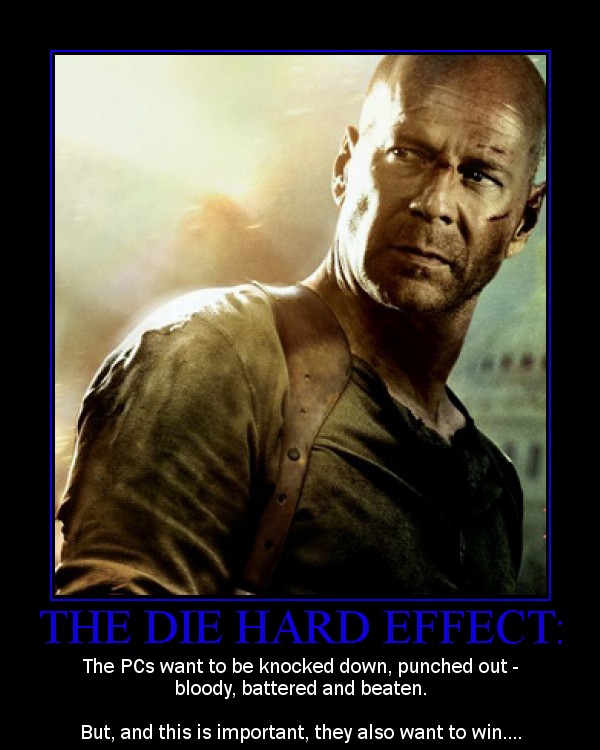JamesonCourage
Adventurer
I'm not trying to change anybody's game. Lots of people play in a style that I wouldn't have in my game.
This seems reasonable.
They may have games when everybody can't show up.
Sounds normal. To each their own, though. I don't fault you for your rule on this one bit.
They may have long, bloody arguments with the DM over his judgement calls.
This happens occasionally in my game, but to be fair, I'm working out the kinks in the rules, and the feedback helps, and the players know it does. In other games (such as D&D or Mutants and Masterminds), the arguments don't work that way.
They may throw lots of experience upon PCs, raising them up to 30th level and beyond and they may make sure that every gold piece and piece of treasure and every magic item is found in a dungeon before the PCs leave, cleaning it all up like D&D locusts.
Not my style of game, but I agree, more power to them.
They may like saying, "Is there a trap down the corridor? Here I roll my Spot check? It's a 14. Did I see anything? I did?. OK, here, I roll my Disable Device skill. It's a 17. Oh, we're past the trap? OK..."
Not usually how we play, but again, nothing wrong with it. Same page so far.
They may do all that and more....AND THAT'S OK! It's their game. I'm not trying to tell them that they're having no good bad fun if they're enjoying themselves.
Awesome
I posted that article for those who "get it" and understand that there is some valuable advice--a refresher course, if you will--written in that thing that can help a good GM be even better in my opinion.
I'm honestly curious, because I think some people are understandably somewhat offended by this... what exactly does "get it" mean? Those who agree? That seems to be the implication.
Hey, if you want to run around and roll play instead of role play, all the while min/max'ing your characters, I'm not here to tell you not to do that.
Just so we're on the same page, you aren't saying that other people who roleplay in the described methods are roll playing and min/maxers, right? It's just a new example? Because the other examples above are definitely not min/maxing, roll playing examples.
I'm just saying that's not what I think of when I think of superior play. If you've got another take on it, then, buddy, more power to ya. Enjoy yourself.
Cool
Trust me. I won't come over to your house and take your dice away from you.
Not really worried about it, but I get the gist of what you're saying




